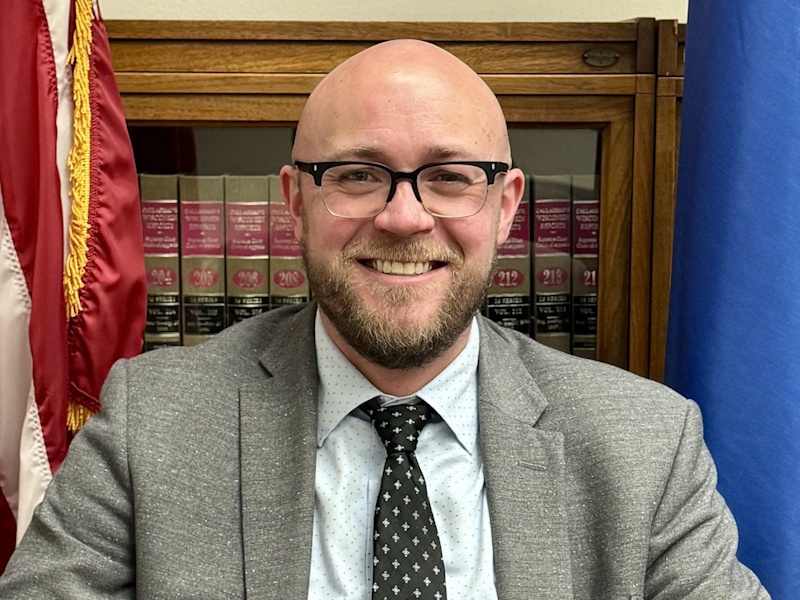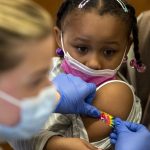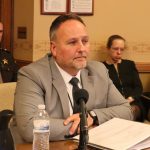Gov. Evers, U.S. Sen. Baldwin, DNR Announce More Than $273 Million to Ensure Clean, Safe Drinking Water for Wisconsinites in 86 Municipalities
Funding bolstered by the Biden-Harris Administration’s Bipartisan Infrastructure Law will help replace lead service lines and address contaminants like PFAS
MADISON — Gov. Tony Evers, together with U.S. Senator Tammy Baldwin (D-Wisconsin) and the Wisconsin Department of Natural Resources (DNR), today announced more than $273 million has been allocated to 86 municipalities through the Safe Drinking Water Loan Program (SDWLP) to improve drinking water quality for Wisconsinites. The funding will help municipalities across the state construct necessary water infrastructure projects, including replacing lead service lines and addressing emerging contaminants such as per- and poly-fluoroalkyl substances (PFAS).
“All Wisconsin homes, schools, and businesses should trust that the water coming out of their faucets is safe to drink, and these funds will help our families get that peace of mind,” said Sen. Baldwin. “I’m grateful to work with state and local partners to remove lead pipes, address dangerous chemicals like PFAS, and deliver clean water to families across Wisconsin.”
There are more than 167,000 known lead service lines throughout the state, and this funding will help municipalities continue their efforts toward the goal of replacing the remaining lead service lines. During his visit to Wisconsin on Oct. 8, 2024, President Biden announced the final U.S. Environmental Protection Agency (EPA) rule to replace all lead service lines by 2037, underscoring the need to support local communities in lead service line replacement efforts. Wisconsin is one of four states leading the renewed effort for replacement by participating in the Lead Service Line Replacement Accelerators Program, and in May, the U.S. Environmental Protection Agency announced Wisconsin would receive more than $83 million in additional funding to help the state identify and replace lead service lines under the BIL.
In total, Wisconsin has received over $330 million for water infrastructure under the BIL, with hundreds of millions more funding still to be allocated over the next few years. Last month, Sen. Baldwin announced Wisconsin is going to receive an additional more than $86 million through the BIL for water system upgrades. Additionally, Wisconsin has been a national leader in providing funding to replace lead service lines and was the first state to utilize SDWLP funds for this purpose. According to a 2023 report from the Wisconsin Policy Forum, more than 37,000 lead service lines have been replaced or turned off since 2018, which is more lines replaced or turned off in just five years than in the previous two decades.
Examples of preliminarily approved projects include:
Campbell | $972,998
The town of Campbell is receiving $972,998 in SDWLP funding, of which $486,499 will be for emerging contaminants principal forgiveness, and the remaining $486,499 will be available at a subsidized interest rate. The funding will be used to address PFAS contamination in Campbell’s private wells/drinking water, which will help replace existing contaminated private wells. Campbell will use the funding for the first phase of their project and will construct a sandstone supply well to be utilized as a future water source for a new water system for the entire town. A distribution system and an elevated storage tank will be constructed during later phases of the project.
Clinton | $700,300
The village of Clinton is receiving $700,300 in SDWLP funding, of which $175,075 will be for general principal forgiveness, and the remaining $525,225 will be available at a subsidized interest rate. Clinton will use the funding for a project to treat iron and manganese exceedances in source water at Well #3. This will be achieved by constructing a water filtration building and installing catalytic filtration and water treatment systems in the new building.
Kenosha | More than $7 million
The city of Kenosha is receiving over $7 million in Lead Service Line Replacement funding, of which $4,928,000 of these funds are for lead service line principal forgiveness, with the remainder through a loan with a 0.25 percent interest rate.
Manitowoc | More than $5.5 million
The city of Manitowoc is receiving more than $5.5 million in Lead Service Line Replacement funding, of which $5,494,800 of these funds are for lead service line principal forgiveness, with the remainder through a loan with a 0.25 percent interest rate.
The city of Milwaukee is receiving more than $30 million in Lead Service Line Replacement funding, of which $19,511,843 of these funds are for lead service line principal forgiveness, with the remainder through a loan with a 0.25 percent interest rate.
Watertown | More than $14 million
The city of Watertown is receiving more than $14 million in Lead Service Line Replacement funding, of which $6,920,199 of these funds are for lead service line principal forgiveness, with the remainder through a loan with a 0.25 percent interest rate.
The funds will be awarded to municipalities over the next year and disbursed as eligible costs are incurred. The funding is a combination of more than $125.6 million of DNR’s SDWLP funding and funding from federal capitalization grants, including the:
- Base Drinking Water State Revolving Fund: $7,980,000;
- Supplemental Safe Drinking Water BIL funding: $39,358,000;
- Emerging Contaminants (PFAS) Safe Drinking Water BIL funding: $13,082,000; and
- Lead Service Line Replacement BIL funding: $87,426,000.
A full list of preliminarily approved projects by municipality for state fiscal year 2025 are available below:
- Safe Drinking Water Loan Program Draft Funding List
- Lead Service Line Replacement Program Draft Funding List
The 2025 preliminary funding lists will be finalized following a 30-day window for municipalities to request a reevaluation of their priority score.
The SDWLP provides affordable financial assistance to municipalities throughout Wisconsin for drinking water infrastructure projects that protect and improve public health for current and future generations. Since the program began in 1998, the DNR and the Wisconsin Department of Administration have provided over $1.1 billion in financial assistance to Wisconsin municipalities. Additional information about the SDWLP can be found online here.
An online version of this release is available here.
NOTE: This press release was submitted to Urban Milwaukee and was not written by an Urban Milwaukee writer. While it is believed to be reliable, Urban Milwaukee does not guarantee its accuracy or completeness.
Mentioned in This Press Release
Recent Press Releases by Gov. Tony Evers
Gov. Evers, DNR Announce $484 Million to Improve Wastewater Infrastructure for Wisconsinites in 82 Municipalities
Jan 8th, 2026 by Gov. Tony EversFunding provided through the Clean Water Fund Program will help small and disadvantaged communities upgrade wastewater equipment
Gov. Evers, DATCP Announce $5 Million to Support Local Farmers and Bolster Statewide Hunger Relief Efforts
Jan 7th, 2026 by Gov. Tony EversFunding provided by 2025-27 biennial state budget to connect local nonprofit food assistance programs with local farmers and producers to keep shelves stocked






















